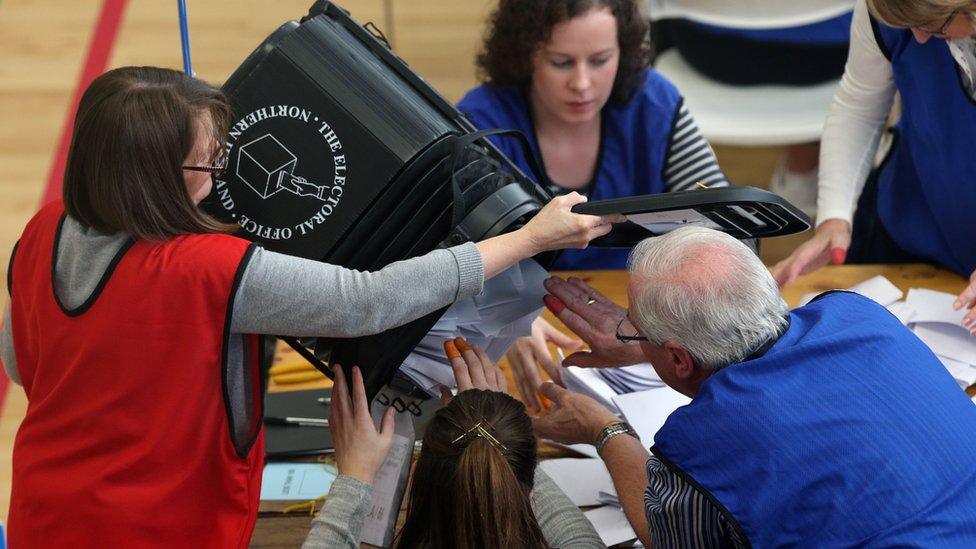Chances of multi-party NI executive 'fading', Naomi Long says
- Published
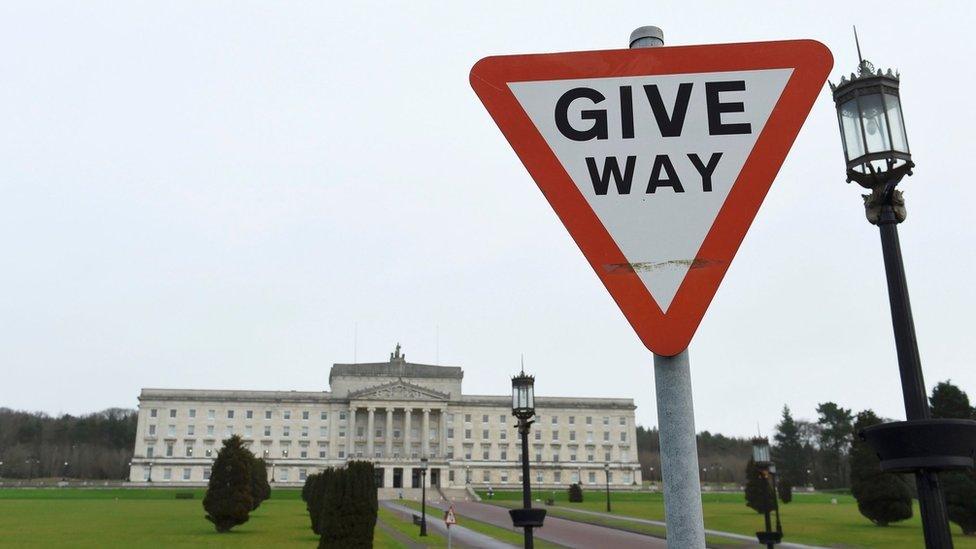
Compromise will be needed to reach a deal to restore power-sharing government at Stormont
The possibility of a multi-party Northern Ireland Executive being formed is lessening, the Alliance Party Naomi Long leader has said.
Political parties have until Monday to strike a deal and form a new power-sharing coalition at Stormont.
Mrs Long said: "The nearer we get to that deadline, the harder it will be to sustain anything more than a two-party coalition."
She added that there has not been enough momentum in the talks process.
The parties returned to the talks table at Stormont on Friday after the funeral of former deputy first minister Martin McGuinness.
The Sinn Féin figurehead was buried on Thursday, when former US President Bill Clinton urged people to finish the work of peace.
The parties have until 16:00 on Monday to resolve issues that divide them - if they fail, another snap Northern Ireland Assembly election could be called, just weeks after a poll held at the start of this month.
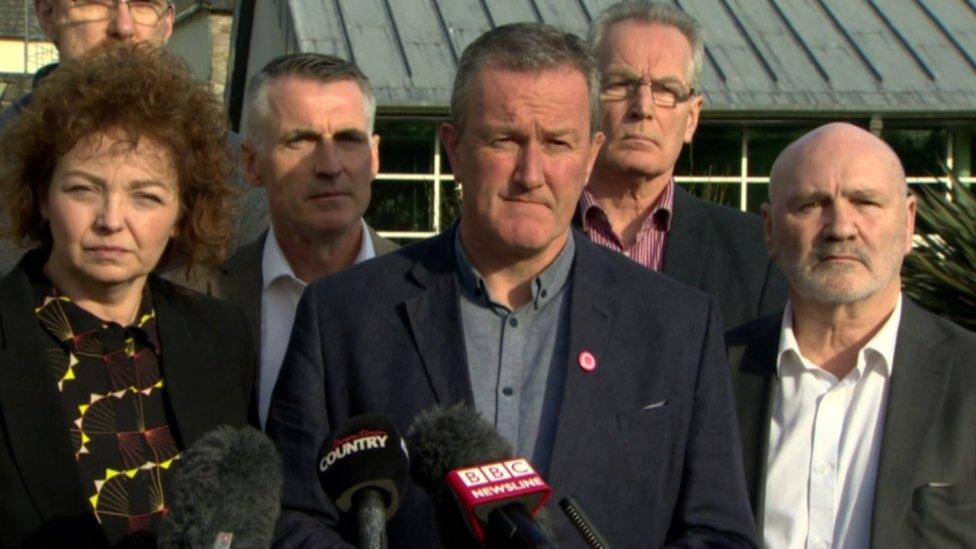
Sinn Féin's Conor Murphy said the talks at Stormont have reached a "critical time"
A major sticking point for the parties has been to find a way of dealing with the legacy of the Troubles.
On Friday, Sinn Féin accused the government of "kicking this can down the road" and denying "access to justice" to families of those killed in the Troubles.
But Northern Ireland Secretary James Brokenshire said there was a "duty" to deliver for them.
There are areas, he said, "where I see common ground and where I firmly believe that resolution can be achieved".
Irish Foreign Minister Charlie Flanagan said a "clear picture" as to the likelihood of an agreement could soon be revealed.
He said he expected more agreement as talks enter a "critical phase" over the weekend.
But there appears to be a gulf between the government and Sinn Féin on Troubles legacy matters.
Republicans have disagreed with unionists and the government over funding for outstanding inquests into numerous high-profile Troubles murders.
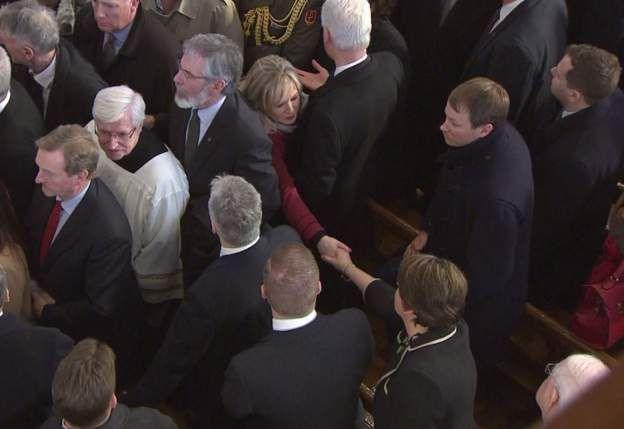
The future? Arlene Foster and Michelle O'Neill made sure they shook hands at Martin McGuinness's funeral
Sinn Féin's Conor Murphy said it was victims' families, not political parties, who needed a resolution to the issue.
"There are families out there waiting 45 years for access to justice," he said.
"The British government cannot continue to deny them access to justice."
Mr Murphy also said his party's position had not changed on the future of Democratic Unionist Party leader Arlene Foster.
His party has insisted it will not enter an executive that she is a part of until an inquiry into an energy scandal that could cost taxpayers £490m is completed.
The Ulster Unionist Party's (UUP) Steve Aiken said there are a "lot of issues that need to be worked through".
His party spent the last assembly mandate in opposition, but appears to be willing to re-enter an executive.
But he said that the UUP would "need to make sure that it's a fully inclusive government" before that would be considered.
- Published23 March 2017
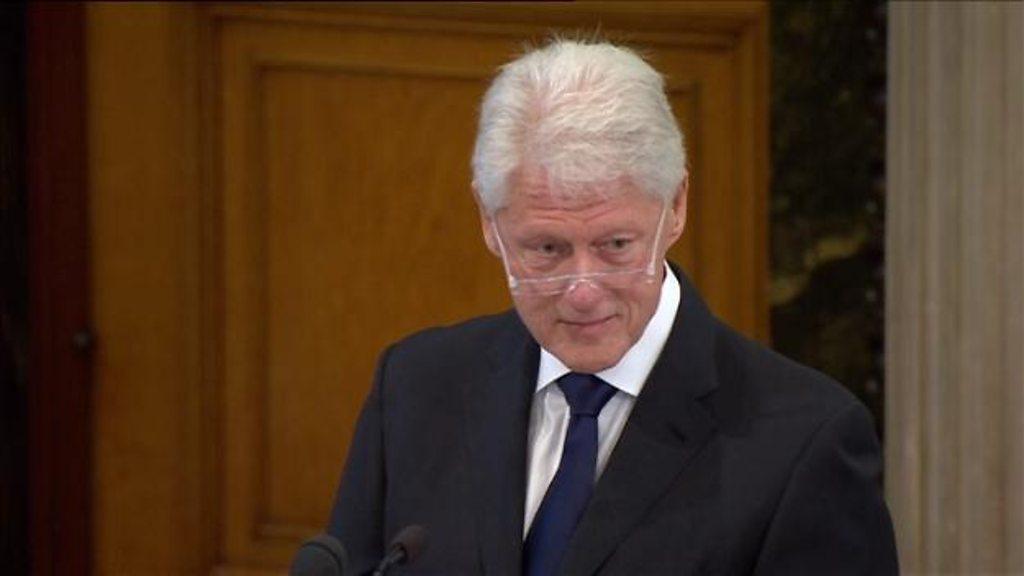
- Published23 March 2017
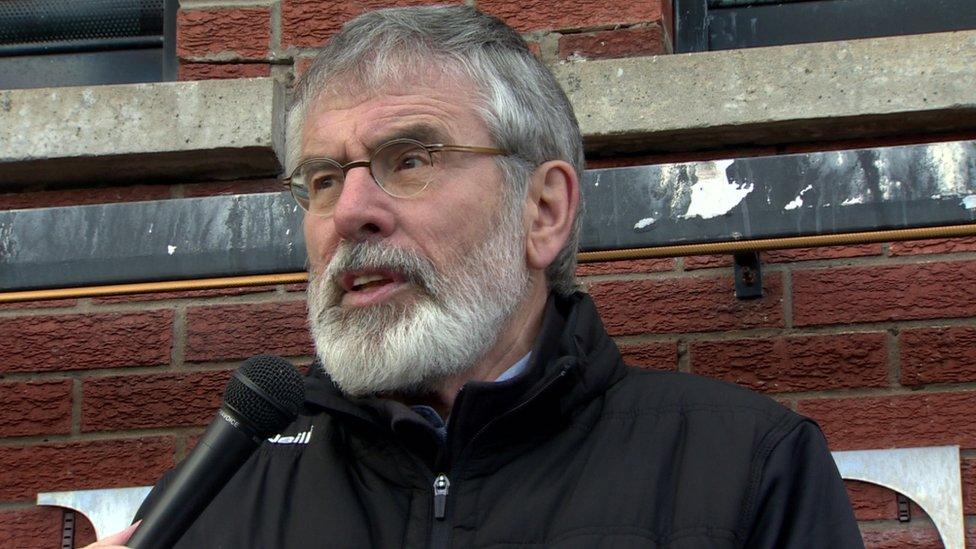
- Published4 March 2017
